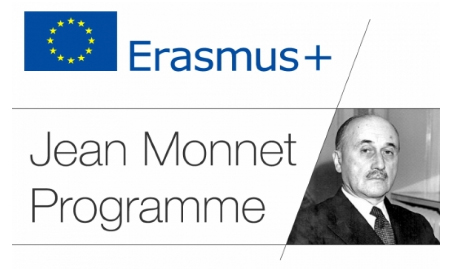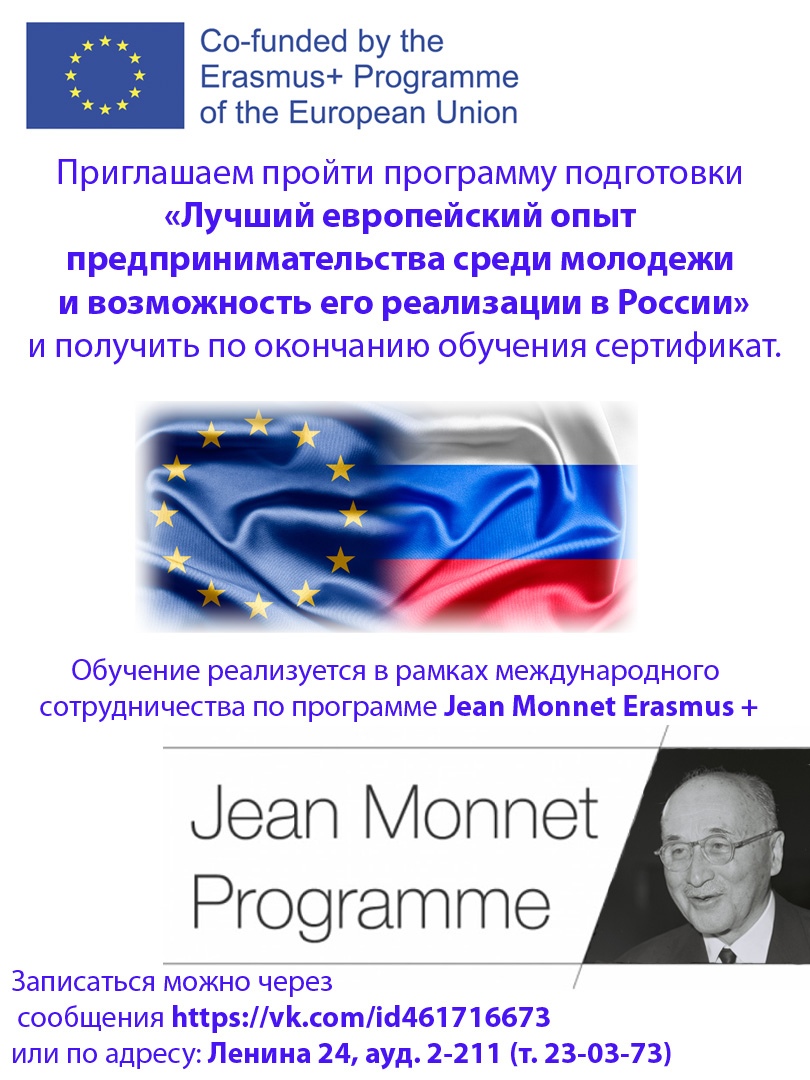News
- 19.06.2019 / Студенты МГТУ освоили европейскую программу проекта Jean Monnet
- 18.06.2019 / Круглый стол по теме «Европейские и российские обычаи делового оборота»
- 28.05.2019 / Публичная лекция на тему: «Лучший европейский опыт молодежного предпринимательства и его применение в России»
- 24.05.2019 / «Современный менеджмент: теория и практика»
- 21.05.2019 / Лекции продолжаются
- 16.04.2019 / В МГТУ проходят лекции по программе Jean Monnet «Лучший европейский опыт предпринимательства среди молодёжи и возможность его реализации в России»
- 26.10.2018 / Современная модель управления: проблемы и перспективы
- 25.04.2018 / Передовой опыт европейских исследований
- 04.04.2018 / Как развивается предпринимательство в ЕС?
- 24.04.2017 / Предпринимать уже сейчас, в студенчестве
- 30.06.2016 / В Европу на учебу
News vk
- 18.06.19 / Вручение сертификатов слушателям программы проекта «European best practices of youth entrepreneurship and possibility of their implementation in Russia»
- 24.05.19 / Публичная лекция в г. Златоуст
- 18.05.19 / Публичная лекция г. Челябинск
- 22.04.19-23.04.19 / IV Всероссийская научно-практическая конференция «Современный менеджмент: теория и практика» в рамках реализации программы Жана Моне ПРОГРАММЫ ЭРАЗМУС+ *
- 18.04.19 / Публичная лекция г. Екатеринбург
- 12.04.19 / Первая лекция по программе Jean Monnet «Лучший европейский опыт предпринимательства среди молодёжи и возможность его реализации в России»
- Приглашение на курсы
- 08.04.2018 / Первая лекция в рамках программы Jean Monnet 2018 года
- Приглашение на курсы Jean Monnet и график занятий


The Jean Monnet Programme, also known as the Jean Monnet Project, is a European Union initiative to encourage teaching, research and reflection in the field of European integration studies in higher education institutions. It is named for Jean Monnet (1888-1979), regarded by many as a chief architect of European Unity.
The programme includes the network of Jean Monnet European Centres of Excellence, university-level institutions recognised by the European Commission for high quality research into, and teaching of, topics relating to European integration.
The Jean Monnet Actions aim at promoting excellence in teaching and research in the field of European Union studies worldwide. These Actions also aim at fostering the dialogue between the academic world and policy-makers, in particular with the aim of enhancing governance of EU policies. European Union studies comprise the study of Europe in its entirety with particular emphasis on the European integration process in both its internal and external aspects. The discipline also covers the role of the EU in a globalised world and in promoting an active European citizenship and dialogue between people and cultures. Jean Monnet is expected to bring positive and long-lasting effects to the participants involved, to the promoting organisations, as well as to the policy systems within which they are framed. As regards the participants directly or indirectly involved in the Actions, Jean Monnet aims to produce the following outcomes: - enhanced employability and improved career prospects for young graduates, by including or reinforcing a European dimension in their studies; - increased interest in understanding and participating in the European Union, leading to a more active citizenship; - support for young researchers (i.e. who have obtained a PhD degree in the last five years) and professors who want to carry out research and teaching on EU subjects; - increased opportunities for academic staff in terms of professional and career development. Jean Monnet is expected in the long run to encourage the promotion and diversification of EU studies worldwide as well as to enhance and extend the participation of staff from more faculties and departments in European Union teaching and research.

